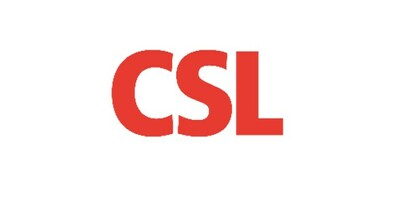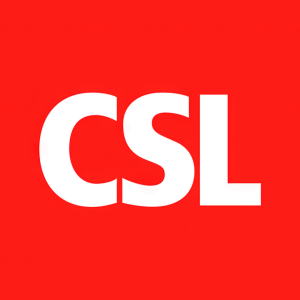CSL's Phase 3 Study Shows First-In-Class Garadacimab Provides Patients with Significant HAE Attack Prevention with Monthly Dosing
CSL (ASX:CSL; USOTC:CSLLY) presented pivotal Phase 3 VANGUARD trial results for garadacimab, a novel monoclonal antibody aimed at preventing attacks in patients with hereditary angioedema (HAE). During the six-month trial, 61.5% of patients on garadacimab experienced no attacks, while those on placebo had none. The monthly dosage led to an 86.5% mean attack rate reduction (p<0.001). Safety data indicated no treatment discontinuations due to adverse events. CSL plans regulatory submissions for garadacimab later this year, further signaling its commitment to developing innovative treatments for rare diseases.
- 61.5% of patients on garadacimab were attack-free during the trial.
- Statistically significant 86.5% mean attack rate reduction versus placebo (p<0.001).
- Garadacimab showed favorable safety and tolerability, with no severe adverse events.
- None.
- Majority of patients were attack free during the entire six-month treatment period (
61.5% ) - Study results presented for first time at 2023 AAAAI Annual Meeting; global regulatory submissions anticipated later in the calendar year
- Garadacimab underscores CSL's promise to develop innovative medicines for people living with rare diseases like HAE, a community CSL has been serving for 40 years
"Targeting FXIIa and the HAE cascade from the start, as opposed to intervening downstream, is an innovative treatment approach that could help stop the process in its tracks," said Dr.
Key Data from the Phase 3 VANGUARD Trial
During the double-blind, randomized, placebo-controlled, multicenter, parallel-group study, patients taking once monthly garadacimab (n=39) experienced a statistically lower monthly attack rate versus placebo (n=24) (p< 0.001), resulting in a mean attack rate reduction of
Overall, during the six-month trial, a majority (
The study also showed that garadacimab demonstrated a favorable safety and tolerability profile. There were no adverse events that led to treatment discontinuation. Five injection site reactions, all mild, were reported in two (
"The data being shared at AAAAI showcase the efficacy and safety profile of garadacimab administered as a convenient monthly subcutaneous injection. The clinical trial results support garadacimab as a novel, first-in-class potential treatment that could offer a significant benefit to patients with HAE," said
Based on the full study data, which are consistent with the positive top line results announced in
About the Pivotal Phase 3 VANGUARD Trial
The multicenter, randomized, double-blind, parallel-group VANGUARD trial evaluated the efficacy and safety of garadacimab, an investigational first-in-class monoclonal antibody, as a prophylactic treatment for patients with hereditary angioedema. Patients aged 12 years and older with HAE type I or II underwent screening and a run-in study period to verify a baseline attack rate. Patients were randomized 3:2 to receive a loading dose of 400mg followed by 200 mg of garadacimab monthly (n=39) or volume matched placebo monthly (n=25) subcutaneously. After the six-month treatment period, patients were given the opportunity to continue into the open-label extension study, which is currently ongoing.
The ongoing open-label extension of the Phase 3 VANGUARD study evaluates the long-term safety and efficacy of garadacimab (200 mg monthly) in patients with HAE.
About HAE and Garadacimab
HAE is a rare, genetic and potentially life-threatening condition that causes painful, debilitating and unpredictable episodes of swelling of the abdomen, larynx, face and extremities, among other areas of the body.
Garadacimab is a novel Factor XIIa-inhibitory monoclonal antibody (FXIIa mAb) currently in Phase 3 clinical development as a new type of once-monthly subcutaneous prophylactic treatment for attacks related to HAE, a form of bradykinin-mediated angioedema. Garadacimab uniquely inhibits the plasma protein, FXIIa. When FXII is activated, it initiates the cascade of events leading to edema formation. By targeting FXIIa, garadacimab inhibits the HAE cascade at its origin as compared with other HAE therapies that target downstream mediators.
Garadacimab was discovered and optimized by scientists at CSL's Bio21–based Research site, with formulation and manufacturing for the clinical programs completed at the CSL Broadmeadows Biotech Manufacturing Facility.
Orphan-drug designation for garadacimab as an investigational therapy for hereditary angioedema has been granted by both the
CSL is also investigating garadacimab for other indications beyond HAE, including idiopathic pulmonary fibrosis, where FXIIa inhibition may play an important role in improving clinical outcomes.
About CSL
CSL (ASX:CSL; USOTC:CSLLY) is a leading global biotechnology company with a dynamic portfolio of lifesaving medicines, including those that treat haemophilia and immune deficiencies, vaccines to prevent influenza, and therapies in iron deficiency, dialysis and nephrology. Since our start in 1916, we have been driven by our promise to save lives using the latest technologies.
Today, CSL – including our three businesses,
For more information about CSL, visit www.CSL.com.
Media Contact
CSL
Office: +1 610-291-5388
Mobile: +1 267-280-3829
Email: valerie.bomberger@cslbehring.com
In Australia:
CSL
Email: Kim.ODonohue@csl.com.au
+61 449 884 603
CSL
Email: Jimmy.Baker@csl.com.au
+61 450 909 211
![]() View original content to download multimedia:https://www.prnewswire.com/news-releases/csls-phase-3-study-shows-first-in-class-garadacimab-provides-patients-with-significant-hae-attack-prevention-with-monthly-dosing-301756102.html
View original content to download multimedia:https://www.prnewswire.com/news-releases/csls-phase-3-study-shows-first-in-class-garadacimab-provides-patients-with-significant-hae-attack-prevention-with-monthly-dosing-301756102.html
SOURCE CSL
FAQ
What were the results of CSL's Phase 3 VANGUARD trial for garadacimab (CSLLY)?
When will CSL submit garadacimab for regulatory approval?
What is the significance of garadacimab in treating hereditary angioedema?








